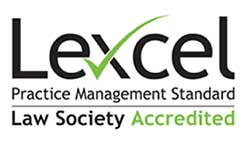If you are looking to buy a commercial property, Wilford Smith’s Commercial Conveyancing Solicitors can offer expert advice to ensure that, whatever the nature of your business, your transaction will be concluded as quickly and seamlessly as possible.
Whether you are a young business looking to secure a permanent location or an established company in the process of expansion, purchasing a commercial property can be a huge undertaking. Finding the right commercial conveyancing solicitor to represent you in this transaction can ensure that your commercial objectives are pursued in a clear, practical and focused manner, leaving you free to concentrate on running your business.
From dealing with lenders to investigating land ownership, the process of buying, selling or leasing commercial property presents a unique set of challenges for business owners. The experienced Commercial Conveyancing Lawyers at Wilford Smith have extensive experience in preparing contracts, negotiating the purchase and sale of commercial property and reaching binding agreements on our clients’ behalf. We also work in the commercial rental sector, providing expertise in lease negotiations for both landlords and tenants.
What is the process for buying a commercial property?
A typical commercial conveyancing transaction will begin with the buyer finding a suitable property for their business’s needs. In many cases, the buyer will work with a commercial estate agent to help them identify the right property. If required, finance will have to be arranged to facilitate the purchase before an offer can be made, often through the buyer’s property agent.
At this stage, the buyer will need to instruct a commercial conveyancing solicitor to manage the complex legal work required to complete the purchase. The buyer’s solicitor will carry out due diligence in relation to the property, including legal searches to determine that there are no issues around ownership, as well as physical surveys. The seller’s solicitor will then draft a contract of sale to be forwarded to the buyer’s solicitor, who will then review it and make any necessary enquiries.
Once the buyer and seller agree the contract of sale terms, a date will be set for completion (when the buyer pays the seller the price and takes ownership of the property). The commercial conveyancing process is completed when the buyer’s solicitor registers the property in the Land Register and pays the required Stamp Duty Land Tax.
How long does a commercial conveyancing transaction take?
Every commercial conveyancing transaction is different and, as such, the amount of time required to complete your purchase will depend on the particular circumstances involved. Relevant considerations will be the value of the transaction, the type of transaction and any other factors that could increase its complexity.
What is the difference between freehold and leasehold?
Property in England and Wales is usually held in one of two ways, as either freehold or leasehold. The owner of a freehold owns the property outright, including the land on which any buildings sit, the buildings themselves, the earth below it and the airspace above.
In the case of leasehold property, ownership of the property is contractually limited by the length of the lease. Modern leases will often be granted for 5-10 years but the granting or sale of long leasehold interests are also common. Leasehold property can be acquired by the granting of a new lease by the owner of the property or an existing tenant, or by taking over an existing lease from the tenant currently in place where this is permitted by the lease terms.
What investigations will I have to carry out on the property?
It is the responsibility of the buyer to carry out investigations into the property before signing a contract to purchase – your conveyancing solicitor will carry out these checks on your behalf. The investigations required will depend on the type of property. You may need to perform local authority searches, drainage and water searches and mining searches. Environmental searches may be required to check for any environmental contamination if the property or land on which it is built has been used for industrial work.
Do I have to pay Stamp Duty Land Tax on commercial property?
Yes, SDLT is payable on commercial properties as well as residential properties. The rate of stamp duty will depend on the value of the property, ranging from 1% to 4% of the purchase price. Your solicitor will arrange for this to be paid within 30 days of the purchase.
Do I have to pay VAT on commercial property?
Whether you are liable for VAT will depend on whether the seller has opted to waive the exemption from VAT. If they have, you will be liable for VAT on top of the purchase price. However, if VAT registered, you may be able to reclaim this sum at a later stage.
Contact our Commercial Conveyancing Solicitors Sheffield
Our specialist Commercial Conveyancing Lawyers are based in Sheffield and serve clients across England and Wales. We pride ourselves on delivering high quality advice, representation and client care. Contact us today on 0808 164 1028 to find out how we can help.



